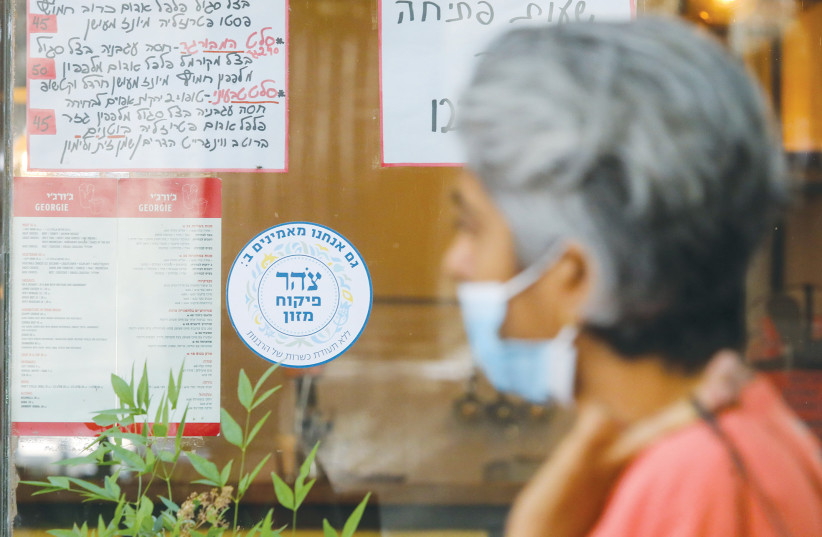Tzohar’s Kashrut (kosher) supervision service has launched a radio campaign promoting itself to food companies and restaurants. The radio advertisements are only four words in the Hebrew version and five words in the English version: “Do you have Kashrut Tzohar?”
The radio campaign, which costs over NIS 250,000, aired last week on Army Radio, KAN Reshet Bet, KAN Reshet Gimmel national radio stations, as well as local station Radio Tel Aviv.
According to officials in Tzohar, the target audience for the campaign is restaurant owners. The ad's question is asked by various men and women from different backgrounds.
"This is the first commercial campaign of its kind in the Israeli kashrut world and it is possible because of the kashrut reform,” Tzohar CEO Yehuda Zeiderman said. “Through the campaign, we reflect to restaurant owners and to the clients who eat kosher, that more and more businesses are under the supervision of Kashrut Tzohar."
“Through the campaign, we reflect to restaurant owners and to the clients who eat kosher, that more and more businesses are under the supervision of Kashrut Tzohar."
Yehuda Zeiderman
Zeiderman said that "we decided to take the reform one step further and use it to launch the first commercial campaign of a kosher supervision service, a step we have never seen from any kosher supplier in the market.”

The kashrut reform
According to Tzohar, since the first step of the kosher reform began, led by Deputy Religious Services Minister Matan Kahana, dozens of businesses have joined their kashrut service. In addition, many Israelis seeking to eat kosher have expressed confidence in the kashrut of those restaurants and visited them. A digital campaign will be launched in the upcoming days, intended to fulfill the same purpose.
The kashrut reform began a process of abolishing the monopoly of the Chief Rabbinate over kosher supervision and opening the market to competition by allowing independent kashrut authorities to legally provide supervision services.
Kosher services provided by the Chief Rabbinate and its local branches have for years suffered from numerous forms of corruption and have been castigated by state bodies and NGOs for failing to provide an adequate service. Under the new law, the Chief Rabbinate established two levels of kashrut standards – basic and stringent – and a body within the Rabbinate has been tasked with ensuring that independent authorities comply with those standards.
